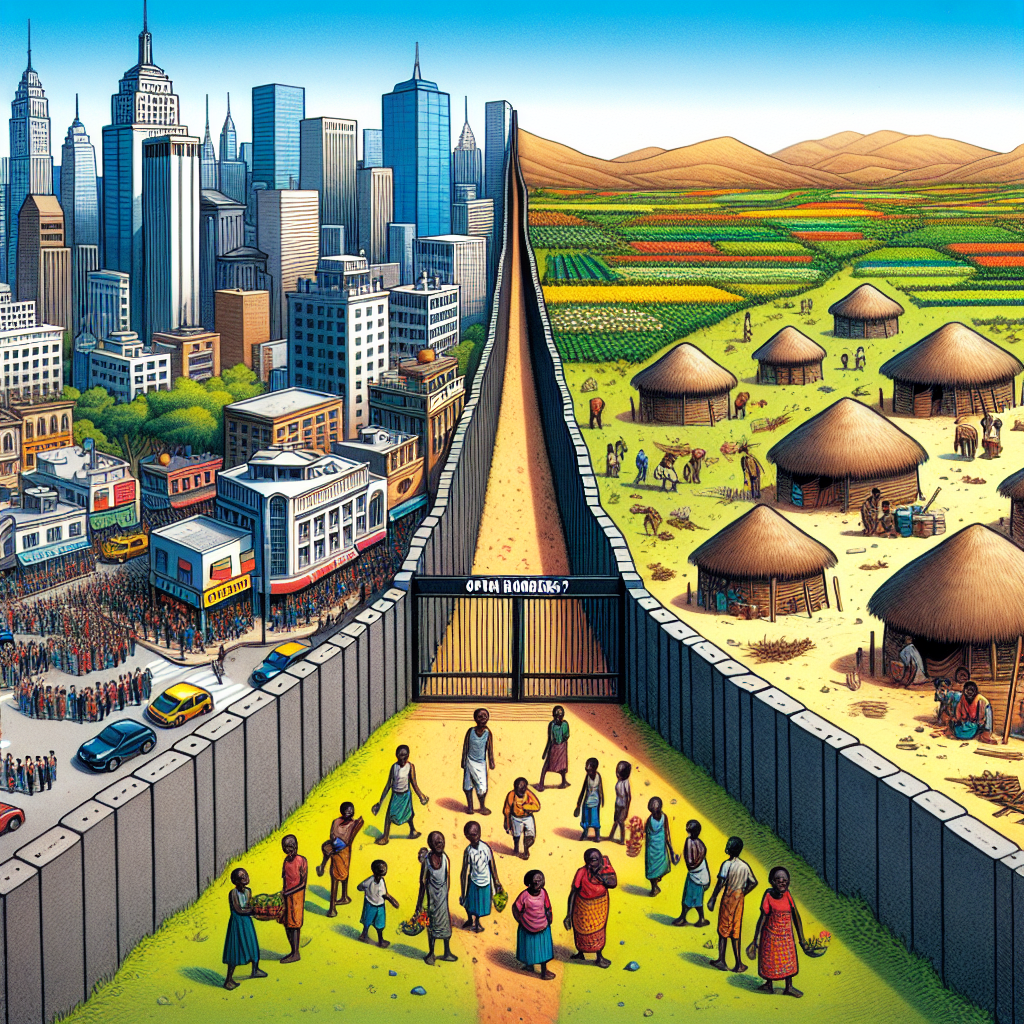Earlier this month, the government of the Dominican Republic (DR) announced plans to deport 10,000 Haitians per week in response to an influx of Haitian migrants, partly driven by ongoing instability within Haiti following the catastrophic earthquake in 2010. Under President Luis Abinader’s administration, there has been a significant expulsion of Haitian nationals, with approximately 67,000 deported during the first half of the year alone. This initiative appears to be part of a broader strategy to address the surge of migrants fleeing gang violence and the collapse of the Haitian state, an issue that has grown considerably in recent years as the socio-political climate in Haiti deteriorates.
The situation in the DR reflects a common trend where large migration flows elicit a backlash from the native population, leading to increasing tensions. While some economists argue in favor of open borders, claiming that migration is beneficial for economic growth, the practical implications of rapid demographic change can introduce numerous complications. Large-scale migration often leads to heightened domestic conflict, socioeconomic strain, and challenges to public resources, overshadowing the potential advantages of cheap labor associated with incoming migrants. Rather than being purely economic resources, migrants bring complexities related to political, social, and cultural integration that can disrupt the existing fabric of society, especially when arrivals happen quickly or in large numbers.
The border between Haiti and the DR, while not formally open, has allowed millions of Haitians to enter the DR, particularly over the last two decades. This migration has escalated from the conditions worsened by the 2010 earthquake and ongoing violence. Estimates suggest that approximately 1.9 million undocumented Haitians live in the DR today, representing over 10% of the country’s population. The overwhelming majority of these migrants have arrived through unofficial channels, exacerbating tensions regarding public services and the distribution of resources. As many Haitians settle in the DR in search of stability, the Dominican government faces pressure from its citizens, who are concerned about the implications of such significant demographic changes on public welfare and national identity.
The growing Haitian population has also catalyzed a political backlash in the DR, where many locals express frustration at the perceived burden of supporting migrants who often lack legal status and, consequently, access to social benefits. This sentiment has contributed to a rise in support for deportation efforts as natives contend with limited resources and opportunities. Instances of violence and intimidation directed at Haitian nationals highlight the strain on social cohesion, and many Dominicans, despite recognizing the contributions of Haitian labor in sectors like agriculture and hospitality, fear the long-term consequences of their growing numbers. The issue is further complicated by historical tensions, as many Dominicans distrust the political implications of a rising Haitian population on their nation and governance.
The political narrative under President Abinader has gained traction in the wake of widespread public support for stringent immigration measures. His administration has positioned itself as vigilant in the face of complaints from the populace regarding the influx of migrants. This includes a landmark decision in 2013 that repealed birthright citizenship for children born to undocumented migrants, aimed at preventing the development of a political bloc that could challenge the status quo. Such measures, while popular among many Dominicans, reflect a deeper anxiety about national identity and self-governance in the face of ongoing change. The fear of compromising political power to an emerging, impoverished demographic strongly influences both public sentiment and governmental policy.
The unfolding situation in the Dominican Republic encapsulates the difficulties faced by developing nations confronted with mass migration. Unlike wealthier countries that can absorb and regulate migrant populations more easily, smaller nations struggle with drastic demographic shifts that threaten societal stability. Should the DR formally open its border to Haiti, a flood of migrants could dramatically alter the demographic landscape, and Dominicans would fear losing their status in the very country they inhabit. The challenges stemming from rapid migration flows highlight significant pitfalls in the open-borders argument as they neglect the risks to political and economic structures within developing nations.
Ultimately, the situation in the DR unveils the flawed assumptions underlying open-borders theories, particularly when it comes to nations with limited resources and pre-existing social strains. The practical realities of immigration require more nuanced policy discussions that account for the historical, economic, and socio-political contexts of both the receiving and originating countries. As the Dominican Republic navigates this complex landscape of migration, it serves as a reminder that migration policies cannot be decoupled from the lived experiences of the native population and the intricate web of local governance, societal norms, and historical legacies that shape these discussions.

